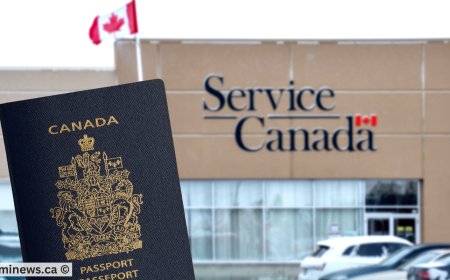Court clerks Canada Immigration Pathways: Understanding Salaries, Work Roles, and Best Provinces
Welcome to the pathway to Canada immigration for skilled professionals and trade workers. This guide is specifically tailored for Court clerks looking to work and settle in Canada, offering a deep dive into the essential aspects of immigration and employment in this field.
Introduction
Court clerks play a vital role in the functioning of the judicial system by providing administrative support to the courts and ensuring the smooth operation of court proceedings. In this article, we will explore the career and immigration prospects for Court clerks in Canada. We will delve into the profile description of Court clerks, their main job duties, education and license requirements, skills required for the role, median age and retirements, salary details, and possible visa options for those looking to immigrate to Canada for employment opportunities in this field. Let's explore the exciting prospects that await Court clerks in Canada.
What is the Profile Description of a Court clerks as per the Canadian National Occupation Classification (NOC) Standards?
Court clerks are responsible for carrying out various administrative tasks in courts of law, including facilitating court proceedings, organizing court schedules, and managing legal documents and evidence. They work in federal, provincial, and municipal courts to ensure the smooth operation of judicial proceedings.
What are the Main Job Duties of a Court clerks in Canada?
- Call courts of law to order, read charges, take pleas from defendants, swear in witnesses, and perform other clerical functions in the courtrooms
- Prepare court files, court dockets, and other documents, as well as manage care and custody of court exhibits
- Record main court proceedings, including pleas, names of witnesses, dates, times, and rulings, as well as update and maintain court office paper and electronic indexes and files on actions taken by court or in response to court decisions
- Prepare documents for and participate in jury selection, receive, disburse, and account for fines, fees, and trust monies
- Assist the public in court offices
What are the Education, Certifications, and Licensing Requirements to Work as Court clerks in Canada?
To qualify for the role of Court Clerk, candidates must have completed their secondary education. Additionally, on-the-job training will be provided to ensure they are equipped with the necessary skills and knowledge to fulfill their duties effectively.
What Essential Skills are Required for Court clerks to succeed in Canada?
The profession of Court clerks requires a variety of essential skills in order to be successful. These skills include the ability to call courts of law to order, read charges, take pleas from defendants, swear in witnesses, and perform other clerical functions in the courtroom. Additionally, Court clerks must be proficient in preparing court files, dockets, and other legal documents, as well as updating and maintaining indexes and files on court actions and decisions. They are also responsible for accounting for fines, fees, and trust monies, disbursing trust monies, preparing documents for and participating in jury selection, recording main court proceedings, administering oaths, and ensuring accuracy and attention to detail in all aspects of their work. Overall, Court clerks must possess a strong attention to detail, organizational skills, communication skills, and the ability to work effectively in a fast-paced and high-pressure environment in order to succeed in this profession.
What is the Median Age and Retirement Age for Court clerks in Canada?
The median age and average retirement age of Court clerks is not available, as the data for these statistics has not been reported or calculated. It is important for organizations to track the age demographics of their workforce in order to better understand the composition of their staff and plan for future retirements and succession planning. Without this information, it may be difficult to anticipate and address any potential gaps or challenges that could arise in the workforce due to retirement. Tracking this data can help organizations better prepare for the future and ensure a smooth transition when skilled professionals decide to retire.
How many job openings exist for Other Court clerks in Canada, and what's their provincial distribution?
The total job openings for Court clerks in Canada is 9. Ontario has the highest number of job openings with 6 positions available, followed by British Columbia with 2 openings, and Saskatchewan with 1 opening. Ontario offers the most opportunities for Court clerks, showcasing a high demand for professionals in this field. On the other hand, Saskatchewan has the least number of job openings for Court clerks, indicating a comparatively lower demand in this province. British Columbia falls in the middle with a moderate number of job opportunities for Court clerks. Overall, the job market for Court clerks in Canada shows a variety of opportunities across different provinces.
What is the hourly wage or salary of Court clerks in different Provinces of Canada?
Court clerks in Canada can expect to earn varying wages depending on the province in which they are employed. In British Columbia, the wage for court clerks ranges from $22.52 per hour at the low end, to $26.17 at the median, and up to $29.92 at the high end. Moving east to Alberta, court clerks see a higher wage range with $24.59 at the low end, $30.98 at the median, and $34.06 at the high end. Ontario offers the highest wages for court clerks with a low of $20.00, a median of $27.00, and a high of $41.00 per hour. These wage discrepancies can be attributed to factors such as cost of living, demand for court clerks, and provincial economic conditions. It is important for court clerks to consider these varying wage ranges when determining where to seek employment in Canada.
What are the various visa options available for Court clerks migrating to Canada?
Court clerks looking to migrate to Canada have various visa options available to them. One popular choice is the Express Entry visa category, which is a point-based system that assesses applicants based on factors such as age, education, work experience, and language proficiency. Additionally, Court clerks can also explore Provincial Nominee Programs, which allow Canadian provinces and territories to nominate individuals who have the skills and experience needed in that particular region. Another avenue to consider is employer-sponsored work visas, where Court clerks can directly apply to work for a Canadian employer. It's worth noting that there may be other visa options currently open for this profession. To learn more about the migration process and explore all available options, we recommend booking an appointment with our professionals for personalized guidance and support.
Have Questions or Need Assistance?
If you have any queries or require assistance with your immigration plans, we're here to help. Our experienced immigration consultants are ready to provide personalized guidance tailored to your specific needs.
Don't hesitate to reach out and schedule an appointment today. Whether you're seeking clarification on immigration processes, exploring visa options, or need support with documentation, we're dedicated to assisting you every step of the way.
Book an appointment with our team to discuss your immigration goals and receive expert guidance for your journey to Canada.
What's Your Reaction?
 Like
0
Like
0
 Dislike
0
Dislike
0
 Love
0
Love
0
 Funny
0
Funny
0
 Angry
0
Angry
0
 Sad
0
Sad
0
 Wow
0
Wow
0









































































